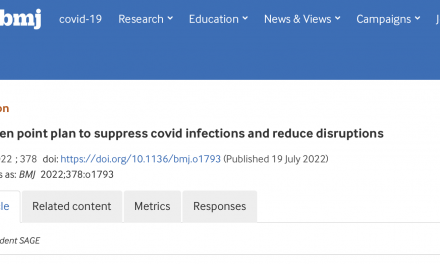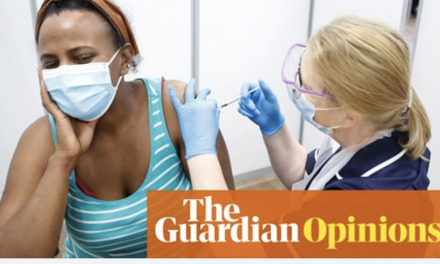We are writing as fellow scientists to express our profound concerns regarding the misuse of the Events Research Programme and its findings. We share the view that it is important to carry out well-designed research to investigate risk and develop mitigations that would allow ‘normal’ activities to resume whenever possible in the context of the pandemic. Some of us have been involved as researchers in the Events Research Programme, or were part of the group of scientists from SAGE subgroups who drew up the principles intended to underlie the Events Research Programme. We are concerned that the way the Events Research Programme is being presented and exploited is both increasing risk and damaging the credibility of science.
There are three main issues that concern us. First, a key assumption of the programme is that the findings from each phase should inform decisions on the next phase. Yet there is little evidence that this is happening. Instead, the phase 2 and phase 3 events have gone ahead before the phase 1 results were fully analysed or published. This is especially concerning given the 15% return rate of testing results and informal reports that some people are presenting their barcode numbers to gain entry without having taken the tests. Phase 1 should be considered a feasibility pilot and procedures found to be inadequate should be adjusted and evaluated until they are adequate.
Second, the Science Board Statement and phase 1 report explicitly cautioned that ‘initial events within the Events Research Programme … are currently insufficient in scale, scope and study designs to generate any direct evidence based on transmission data on how opening events might be done to mitigate risks of transmission, by the end of Phase I”. But numerous headline stories in the media translated this absence of evidence into evidence of absence. While the UK government is not responsible for these headlines, there has been no visible attempt from official sources to correct this interpretation of the results.
Third, the Science Board has had no input into the selection of events. The impression from the outside is that national prestige (Euro2020, Wimbledon) or personal connections with the UK government (Lloyd Webber’s musical) are the key selection criteria, rather than scientific usefulness.
Together, these three features suggest very strongly that the decision has already been made that high profile events will go ahead with large crowds, for political purposes, irrespective of findings (or lack of them). If this is the case, then science is serving as a fig-leaf for these politically based decisions, which is damaging for the reputation of science as well as dangerous for the public health of the country. Whether or not this is the case may never be known, but the fact that it appears as such is damaging to the credibility of scientists, as well as (further) undermining trust in Government. Both of these are likely to undermine adherence to guidance, thereby increasing transmission.
To address these issues we are therefore calling for the following changes in future Events Research Programme activity:
First, there should be timely release of findings and analysis before moving on to the next stage.
Second, scientists should be involved in press briefings on findings.
Third, scientists should be involved in the selection of appropriate events.
Fourth, the programme as a whole would benefit from greater openness and transparency before each event, not just at the reporting stage. We therefore call for all design and analysis protocols to be defined and released in advance.
July 2021



